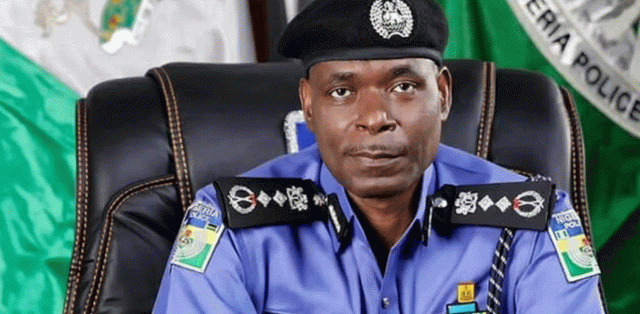Headline
#EndSARS: SERAP drags Buhari’s Nigeria to Commonwealth for sanction

Socio-Economic Rights and Accountability Project (SERAP) has dragged President Muhammadu Buhari’s Nigeria to the Commonwealth, requesting for Nigeria’s suspension over human rights violations and abuses. The group made the request in an urgent appeal to Patricia Scotland, Secretary-General of the Commonwealth.
The group once suspended Nigeria in 1995 during the Abacha era for illegal executions of Ken Saro-Wiwa and others and ‘serious violation of the principles set out in the Harare Declaration’.
In the appeal dated 10 October, SERAP urged her to use her “leadership position to apply the Commonwealth Charter to hold Nigerian authorities to account for widespread and persistent attacks on peaceful protesters, reports of human rights violations and abuses, corruption, impunity, as well as disregard for the rule of law.”
The organization asked Scotland to “urgently consider recommending the suspension of Nigeria from the Commonwealth to the Heads of Government, the Commonwealth Chair-in-office, and Her Majesty Queen Elizabeth II, as Head of the Commonwealth, to push the government to respect the Commonwealth’s values of human rights, transparency, accountability and the rule of law.”
SERAP deputy director Kolawole Oluwadare, who signed the appeal said: “Such action by the Commonwealth will be commensurate with the gravity of the human rights situation in the country. “A government that attacks its own citizens for peaceful protests severely undermines its credibility as a democratic regime that respects human rights and the rule of law.”
According to SERAP, “Respect for Commonwealth values is essential for citizens to trust Commonwealth institutions. The Commonwealth ought to make clear that respect for human rights, transparency and the rule of law is fundamental to the integrity, functioning and effectiveness of its institutions.”
“Persistent attacks on protesters have severely constrained the ability of the people to participate in their own government, and to hold authorities and public officials to account for alleged corruption, and human rights violations and abuses, thereby causing serious hardships for ordinary Nigerians, and undermining their rights, livelihood and dignity.”
“The ongoing events in Nigeria demonstrate the authorities’ determination to suppress all forms of peaceful dissent and freedom of expression of the Nigerian people. There are well-founded fears that the human rights situation in Nigeria will deteriorate even further if urgent action is not taken to address it.”
“These protests are taking place against a backdrop of the failure by the Nigerian government to address persistent concerns around police brutality and impunity, corruption, lack of respect for economic and social rights of the people, and disregard for the rule of law.
“The result has been a crisis of daily electricity outages, a struggling public education and health system, lack of access to clean water, and widespread youth unemployment.”
“Lack of transparency and accountability, and the absence of the rule of law in Nigeria have resulted in a growing level of protest activity, and an unprecedented brutal crackdown on human rights by the authorities.”
“People have been targeted simply for exercising their fundamental freedoms including their rights to freedom of peaceful assembly and expression to end police brutality and impunity. “SERAP is concerned about a significant deterioration in the human rights situation in the country since the assumption of office by the government of President Muhammadu Buhari in May 2015.”
“Nigerian authorities have since 2015 promised to address police brutality and impunity but have repeatedly failed to do so. Authorities would seem to be suppressing protests to punish and intimidate people campaigning for an end to police corruption and brutality, grand corruption and impunity, human rights abuses, and disregard for the rule of law.”
“Allowing citizens to freely exercise their human rights including to freedom of expression and peaceful protest without threat of reprisal or attack would enable them to contribute to society on issues of transparency, accountability, good governance, integrity, and human rights.”
“The Commonwealth Charter recognises the inalienable right of individuals to participate in democratic processes, in particular through peaceful protests and freedom of expression in shaping the society in which they live and for these rights to be protected and respected.”
“Similarly, Nigeria has responsibility under the Nigerian Constitution of 1999 [as amended] and international human rights treaties to which the country is a state party to protect peaceful protesters and ensure a safe and enabling environment for people to exercise their freedom of expression and peaceful assembly.”




 Davido's Net Worth & Lifestyle
Davido's Net Worth & Lifestyle 
